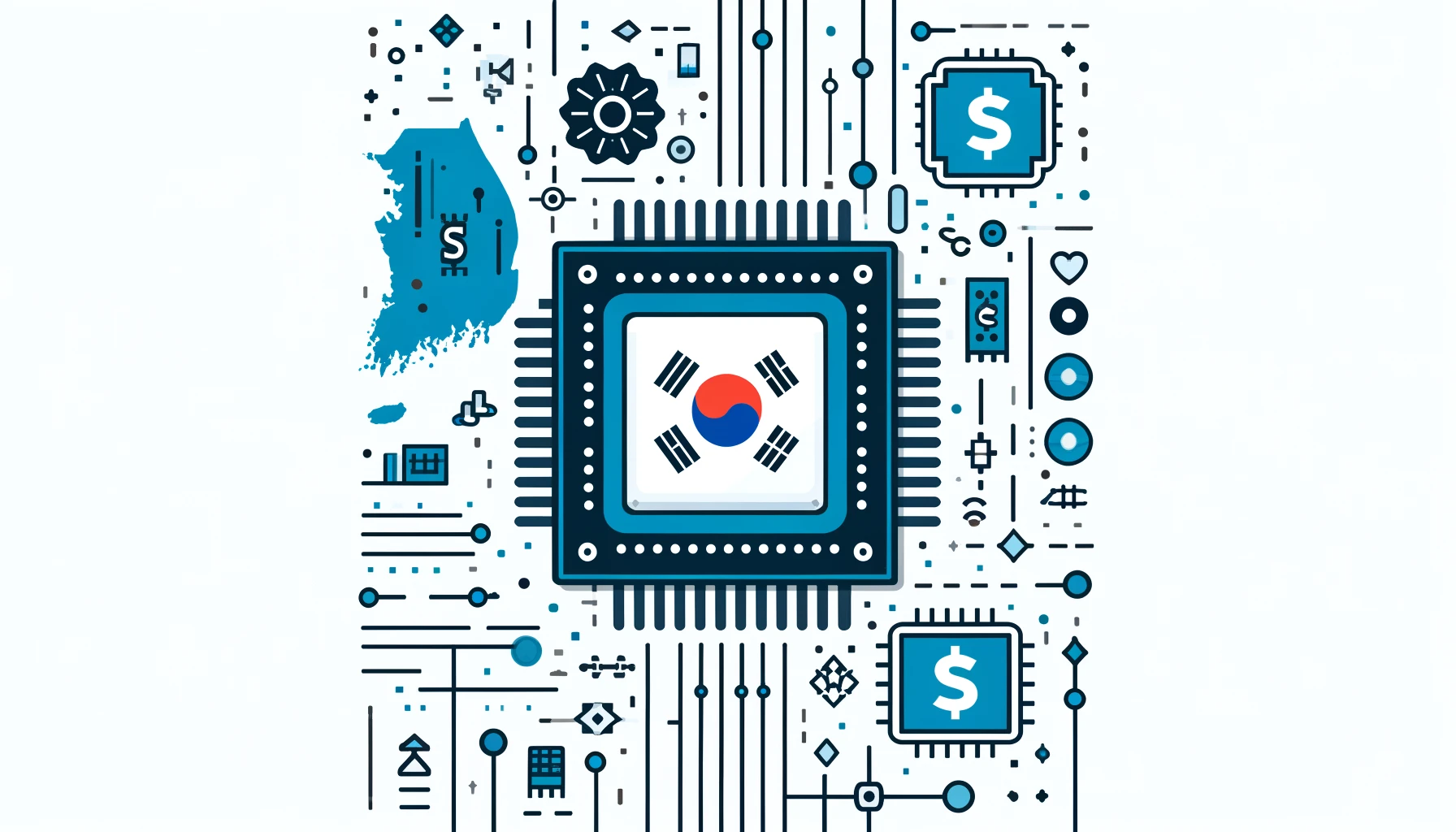
In a significant move to strengthen its semiconductor industry, South Korea has introduced a $19 billion package of incentives aimed at bolstering its chip sector. This initiative is set to benefit major players such as Samsung Electronics Co and SK Hynix Inc, enabling them to maintain their competitive edge in a rapidly evolving global market.
The comprehensive 26 trillion won program includes 17 trillion won in financial support for specific investments and a range of tax incentives, according to a statement from the presidential office. This package significantly exceeds the 10 trillion won initially proposed by Finance Minister Choi Sang-mok just two weeks ago.
- Total Financial Support: 17 trillion won
- Tax Incentives: Aimed at encouraging investment in cutting-edge semiconductor technology
- Total Package Value: 26 trillion won (approximately $19 billion)
Following the announcement, shares in Samsung reversed earlier losses, climbing as much as 1.4% in Seoul on Thursday. Other semiconductor stocks in Asia also experienced a boost, largely influenced by Nvidia Corp’s impressive earnings report. SK Hynix’s stock extended its morning gains, rising about 3% post-announcement.
This record-breaking program comes amidst global calls to support local chip industries. Governments from the United States to China are investing billions to attract and enhance manufacturing projects by companies like Taiwan Semiconductor Manufacturing Co and Intel Corp. This trend is being driven by escalating Washington-Beijing tensions, which pose a risk to the global supply chain of components vital to modern technology and military applications.
South Korea, recognized as the world’s largest memory chip producer, has traditionally relied on private conglomerates like Samsung and SK to spearhead investment initiatives. However, the government is now taking a more proactive stance, leading efforts to develop a mega-cluster of chip plants outside Seoul.
Historically, South Korean conglomerates have been at the forefront of investment in the semiconductor sector. Samsung and SK Hynix have consistently led the charge in research and development, ensuring South Korea’s position as a global leader in memory chip production.
With the new incentive package, the South Korean government aims to not only sustain but also amplify this trend. The financial support and tax incentives are designed to catalyze further investments in advanced semiconductor technologies, positioning South Korea as a hub for innovation in this critical industry.
Incentive Package Breakdown
| Component | Amount (Trillion Won) | Description |
|---|---|---|
| Financial Support | 17 | Directed towards specific investment initiatives |
| Tax Incentives | – | To encourage further investments in semiconductor tech |
| Total Package Value | 26 | Total worth of the incentive package |
Despite the substantial investment, several challenges remain. The global semiconductor industry is facing intense competition, with countries like the US and China aggressively expanding their own capabilities. Additionally, supply chain disruptions caused by geopolitical tensions could pose significant risks.
To mitigate these challenges, South Korea’s government and private sector must collaborate closely. Investments in research and development, workforce training, and infrastructure will be crucial to maintaining a competitive edge.
- Historic Investment: The $19 billion package is the largest of its kind in South Korea’s history.
- Strategic Goals: Aimed at reinforcing South Korea’s leading position in the global semiconductor industry.
- Global Competition: Part of a broader trend of increased investment in chip manufacturing worldwide.
- Government Role: Marking a shift towards more active government involvement in the semiconductor sector.
South Korea’s $19 billion incentive package represents a monumental effort to fortify its semiconductor industry against global competition and supply chain uncertainties. By providing substantial financial support and tax incentives, the government aims to stimulate significant investments in cutting-edge technologies and infrastructure. This initiative not only underscores the strategic importance of the semiconductor sector but also highlights South Korea’s commitment to maintaining its leadership in the global market.
- Financial Support: 17 trillion won earmarked for specific investments.
- Tax Incentives: Aimed at driving innovation in semiconductor technology.
- Stock Market Impact: Positive response from semiconductor stocks post-announcement.
- Global Competition: Reflects a global race to bolster semiconductor capabilities amidst geopolitical tensions.
- Government Strategy: Increased proactive involvement in the sector, marking a departure from historical reliance on private conglomerates.
The success of this incentive package will depend on effective implementation and the ability to navigate global challenges. Continued investment in innovation, coupled with strategic government support, will be vital for South Korea to sustain its competitive edge and drive future growth in the semiconductor industry.
By taking these steps, South Korea aims to not only secure its position as a leader in memory chip production but also to expand its influence in the broader semiconductor market, ensuring long-term economic growth and technological advancement.
Related News:
Featured Image courtesy of DALL-E by ChatGPT
